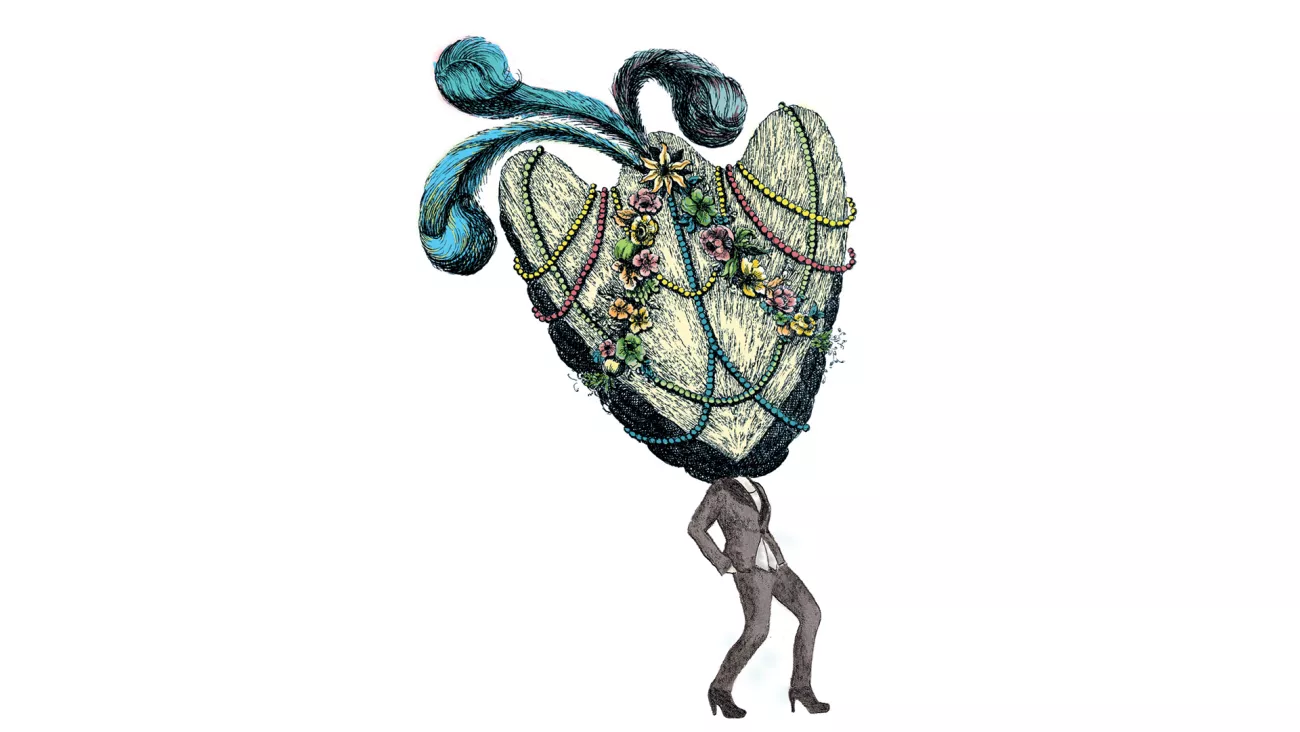Opéra-Ballet by André Campra with a libretto by Antoine Danchet. Premiered at the Académie royale de Musique on 17 June 1710. With a prologue and 3 entrées: Le Bal, Les Sérénades et les joueurs and L'Opéra.

When the noble and pompous Paris Opera decided to renew itself in the Age of Enlightenment, it adopted comedy. Comedy, that is to say intrigue, chivalry, the diversity of tone and the modernity of language: all that which made a work livelier for its contemporaries.
Dance, which had always been part of French operas, rose to prominence. Opéra-ballet emerged, magnificent and pleasing to the eye, and won audiences with its succession of entrées: autonomous and indefinitely combinable plots.
The dazzling and lasting success of Les Fêtes vénitiennes was instrumental in the advent of this new form of entertainment. André Campra, who prevailed over French music since Lully’s death, displayed all his art in these gallant and witty intrigues against a background of unbridled carnival. William Christie and Robert Carsen are reunited after their 2014 Platée so as to revive the splendor of opéra-ballet.
Presentation of the work by Agnès Terrier 40 minutes prior to each performance.
Performance duration : 3h with an intermission
Culturebox will broadcast Les Fêtes vénitiennes live on the 30 january 2015 - 8pm.
Prologue
The Triumph of Folly over Reason during Carnival
Venice. Carnival appears and invites the crowd to join him for the festivities. Folly joins him with her retinue of Pleasures and supports his ambition to amuse and entertain. But a killjoy arrives: Reason. Assisted by wise Democritus and Heraclitus, she attempts to disenchant the crowd and warns everybody against the aberrations of Carnival. In vain: she must leave Venice, letting Folly and Carnival lead the festivities.
The Ball
Prince Alamir courts Iphise without revealing his identity. To test the girl’s sincerity, he swaps his clothes with his servant Themir. A music master and a dancing master, both French, have been asked to organize the sumptuous ball given by the prince in the evening. Each master endeavors to show he is the best and that his art prevails over the other. Themir, disguised as a prince, is to follow his efforts while Alamir, dressed up as a servant, puts Iphise to the test by trying to convince her to accept the love of “Prince” Themir. Iphise is confused and her despair brings about the revelation: Alamir, delighted to be loved for himself and not for his rank, proves to be the actual patron of the festivity. Charmed by the stratagem, Iphise reaffirms her love for Alamir. Both the prince and his new princess can partake in the ball light-heartedly. Intermission
Serenades and Gamblers
One evening two anxious and jealous girls meet in a Venetian square: Isabelle and Lucile have come to catch their unfaithful lover, each one believing that her lover deceives her with the other. It is indeed one and the same man, Léandre, but the two rivals find out that a third girl is involved. They hesitate to unite for revenge, each one thinking that the other wants to keep Léandre. The gallant is coming with a troupe of musicians and plays a serenade under the balcony of the one he hopes to conquer, Irène. From her window, she responds with an Italian tune in which she calls him a fickle butterfly and spurns him. But Léandre, seeing a woman approach in the dark, believes that Irène came down to join him. He assures her that neither Lucile nor Isabelle have ever charmed him. But it turns out that he actually spoke to the two girls who eventually reject him forever. He comes to terms with it and rejoins a troupe of gamblers who celebrate the power of Fortune: she exhibits the influence of her fickleness on gambling and love alike.
The Opera
In a theater where an opera is to be performed, a new actor enters: this is of Boreas, who hopes to approach Léontine, a singer he adores. Adolphe, a singer himself and Damire’s friend, tries to divert the knight from his venture to no avail. Damire is determined to abduct she who is to perform the part of Flore this evening before his rival Rodolphe, who is to attend the performance, abducts her. It turns out that Léontine is really in love with Damire. Tired of pretending, she wishes to be sincere despite the admonitions of her colleague Lucie who appreciates the duplicity of their situation. The singing master arrives to make Léontine rehearse her part. But he also loves her and shows his jealousy of Rodolphe, who is waiting for Léontine backstage. The performance begins with Rodolphe in attendance: it is a pastoral featuring shepherds and shepherdesses with Zéphire and Flore, the latter played by Léontine. The entertainment is interrupted by the untimely arrival of the god of wind Boreas, who abducts Flore with the help of the north winds. While Zéphire mourns over Flore’s disappearance, Lucie declares that the performance cannot go on since Léontine has truly been abducted, not by Boreas but by he who was acting him: Damire! Rodolphe, furious of having been abused, can only leave the theater and run to the port as the two lovers are about to leave Venice.
Epilogue
The carnival ends and life is back to normal again… or so it seems!
Musical direction, William Christie • Staging, Robert Carsen • With Emmanuelle de Negri, Élodie Fonnard, Rachel Redmond, Emilie Renard, Cyril Auvity, Reinoud Van Mechelen, Sean Clayton, Marcel Beekman, Marc Mauillon, François Lis, Geoffroy Buffière • Dance, Scapino Ballet Rotterdam • Orchestra and choir, Les Arts Florissants with the support of The SELZ Foundation
See all the castMonday, January 26, 2015 - 8:00pm
Tuesday, January 27, 2015 - 8:00pm
Thursday, January 29, 2015 - 8:00pm
Friday, January 30, 2015 - 8:00pm
Sunday, February 1, 2015 - 3:00pm
Monday, February 2, 2015 - 8:00pm
Salle Favart
120, 95, 72, 41, 15, 6 €
Cast























Dance, Scapino Ballet Rotterdam
Orchestra and choir, Les Arts Florissants
Production, Opéra Comique
Co-production, Les Arts Florissants with the exceptional support of The SELZ Foundation, Théâtre du Capitole de Toulouse, Théâtre de Caen, Centre de Musique Baroque de Versailles
Culturebox will broadcast Les Fêtes vénitiennes live on the 30 january 2015 - 8pm.
Partnership





























